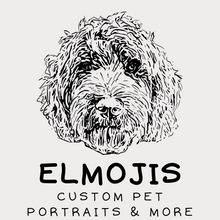The fashion industry is one of the most polluting industries in the word. Fashion, and in particular fast fashion often implies rapid production and often in large quantities in order to minimize costs.
This economic model of “blind” production is no longer as profitable and above all is not ecological: these products produced and stored unnecessarily have required a lot of energy from humans but also from the planet. Resources such as water or electricity were used not only to manufacture them but also to store them.

After a few months of immobilization, these unsold items will unfortunately, most of the time, be destroyed, which once again generates a consumption of energy and resources.
In recent years, society has begun to think about the best ways to save our resources in order to protect our planet. Only, today, we no longer just have to think, it's time to take action.
New methods of eco-responsible production and consumption are already in place and it works if everyone plays the game, and especially if the necessary financial means are committed.
We see, for example today, an upsurge in electric cars on the road, an acceleration in the installation of solar / photovoltaic panels on the roofs, more and more people are going to local producers to buy their fruits and vegetables, waste sorting has become an increasingly common practice...
All these actions contribute to the protection of the environment and empower both citizens and businesses.
Our generation must act and propose solutions to preserve our resources, hence the emergence of new modes of consumption and production.
Manufacturing on customer demand is one of the solutions now available. This increasingly common method tends to become one of the main economic models in the world.
It aims to avoid the destruction of unsold items but also to respond to more reasoned consumption, the desire for personalisation and an eco-responsible approach.
Print on demand, by nature, is more respectful of the environment than traditional production.
However, it is certainly possible to do better than the classic model, we are convinced of that.
This is how our concept comes to live, articulated around the printing on demand of eco-friendly products and the cleanest possible packaging/shipping.
The textile industry is known to be polluting and very often not very attentive to the working conditions of employees.
A real awareness has taken place in recent years and some manufacturers have decided to take matters into their own hands by making the switch to sustainably produced products.
Organic cotton is the most striking example of this: its cultivation requires much less water and is much more respectful of the environment than conventional cultivation.
It seemed obvious that we decided to offer you only ethical and organic products.
Beyond the ecological aspect, we also select our products according to their printability: we are looking for quality items adapted to our printing techniques (DTG, sublimation) in order to obtain top results.
We make it a point of honor that the products shipped are sparkling and dazzling. The “wow” effect is expected when you open your package.
As you will have certainly understood, at Elmojis, we do not joke about ecology and above all we love our pretty planet: when we have had to choose our printers, we opted for one with equipment using only water-based inks.
These are certified by the OEKO-TEX® ECO PASSPORT and by the GOTS 5.0 label. And the icing on the cake: they are labeled VEGAN.

At Elmojis, we don't like plastic. We then took the decision to remove plastic from all our packaging.
For the shipment of our textiles, we have chosen two types of eco-responsible packaging:
Cardboard pockets made from 100% recycled and recyclable paper (these are certified by the FSC program and the factories are ISO 14001 (environmental management) and ISO 50001 (energy management) certified.
For the rest of our shipments, we use cardboard boxes of different sizes.
In all these different cases, we use kraft paper adhesive; much more ecological than its (nasty) plastic cousin, it is highly robust and adds the final touch to your shipments with the utmost respect for the planet.
We have also managed to remove the bubble wrap from our mug packaging by using cardboard boxes specially developed for our use, resistant to various shocks during delivery.

Let's finish with a little extra: the paper on which the slip for each order is printed is 100% recycled and comes from sustainably managed forests.
A 100% carbon neutral delivery service: We solved this problem by working at 95% with La Poste Française, which is the 1st carbon-neutral postal operator in the world where 100% of emissions from the group's activities are measured and offset.

